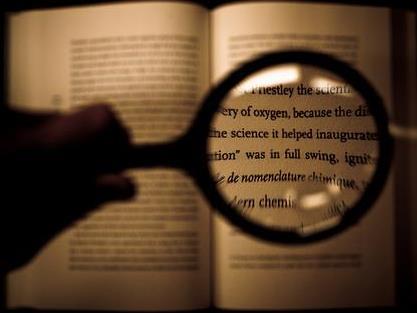Image: Jake Bouma via Flickr
Unusually for a typically low-key industry, publishing has been much in the national news this week. At the Prime Minister’s Literary Awards on Monday night, there was more than the usual controversy, with several award winners donating their prize money to left-leaning charities, including $40,000 from Richard Flanagan to an Indigenous literary charity.
It has since emerged that the Prime Minister personally intervened in the judging, to ensure that Richard Flanagan was jointly awarded the fiction prize. Rumours continue to circulate as to exactly why. Was it because he likes Flanagan’s book? Or are there political motives at play – perhaps to give the awards an appearance of political balance?
The interest in the awards has been such that little attention has been extended to the policy announcement made by Prime Minister Abbott on Monday night: the formation of a new publishing industry body, to be called the Book Council of Australia.
The aim of the new body, according to the Prime Minister, will be to ‘promote Australian writing nationally and internationally and encourage and promote reading.’
‘It will strengthen the sector’s capacity to respond to rapid change brought by new technologies.’
‘Members of the new Book Council of Australia will be drawn from a wide range of literary and industry organisations.’
And … that’s it. No more details are available from either the Prime Minister’s Office or the Attorney-General’s Department, where the new body will be hosted.
Is there any funding for the initiative? Who will run it? What will it do?
No extra detail has been forthcoming. ArtsHub put a number of questions to the Ministry for the Arts. At the time of writing, no response had been received. Critically, we were not able to confirm whether any government funding will be provided.
According to industry sources that ArtsHub has spoken to, the new quango is the brainchild of Melbourne University Publishing’s Louise Adler, who has lobbied Arts Minister George Brandis strongly in recent months.
Adler, a high-profile publisher whose political connections ensure she is both feared and respected, is the hot tip to chair the new body. Other industry representatives tipped to get a guernsey include Penguin Random House’s Gabrielle Coyne and well-known book seller Jon Page.
Sources tell ArtsHub that the activities of the new body are likely to be modelled on the UK’s successful Booktrust, an industry body that has focussed on audience and market development, particularly in children’s reading initiatives. Some industry research and advocacy could also take place.
There’s no doubt the book industry lacks a coherent policy vision. As with so many other aspects of cultural policy since the election of the Abbott government, there has been considerable inertia and confusion about the future of Labor-badged industry policies.
Under former industry minister Kim Carr, the books industry enjoyed reasonable succour. In the wake of the parallel importing controversy, Carr convened a body called the Book Industry Collaborative Council (BICC), which researched the challenging conditions faced by a domestic industry buffeted by foreign monopolists (Amazon) and digital disruption (Amazon).
In one of those ironies of democratic governance, the Collaborative Council’s final report landed on Carr’s desk in September 2013 – right at the end of the Labor government. It has languished in limbo ever since.
The new Book Council of Australia now has the opportunity to pursue the BICC’s unfinished agenda, for instance in regards to export assistance and the crippling postage costs imposed by government-owned Australia Post.
That’s if it wants to, of course. Can a new industry body funded by the government lobby that government effectively and publicly? And will a new Book Council dominated by the political influence of one prominent publisher adequately represent a complex cultural industry made up of a disparate collection of readers, writers, retailers and smaller publishers? Can the menace of Amazon be defeated? Can the pirates be repelled?
Insiders that ArtsHub spoke to also nominated an inevitable showdown with the Australia Council over its incipient reforms, which will see the funding renegotiated for all the key organisations formerly housed in the Literature Board. Can literature increase its share of the Australia Council’s funding pie, currently heavily weighted towards the performing arts? Or will the Grybowski vision see widespread defunding? No-one really knows.
Who will pay? Sources inside the Arts Ministry have hinted that some federal funding will be found, but how much, and when, is yet to be decided.
As one industry source told Arts Hub this morning, ‘Don’t ask the Minster. The only person who knows that is Louise Adler.’ As of ArtsHub’s deadline, Adler was not talking.





